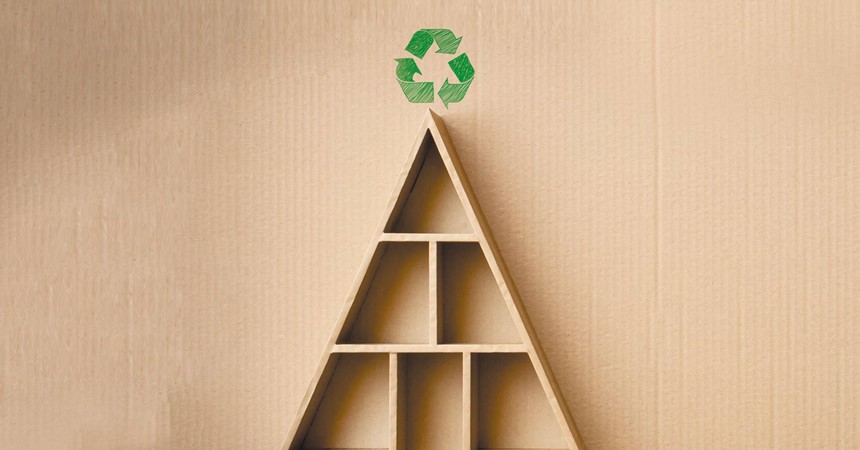A physical gift for all is not necessary. Stay away from the stress of the shops and the gifts that just gather dust and occupy space.
For relatives, friends, neighbours, acquaintances, workmates − why not send greetings via telephone calls, visits, cards with a personal message, not just ‘to’ and ‘from’?
For immediate family, we suggest that for each adult, just one gift is purchased and given anonymously and just one gift is received. There should be a $ limit and families will work out their own creative ways of doing this.
A fun challenge could be nothing over $20, and the gift has to be bought in an op shop, recycling while helping a charity. It’s a great example for younger members of the family!
Gifts such as preserves, relishes and fruitcakes, for those with the skills to make them, are very acceptable.
A Christmas present we can all give – for the benefit of everyone − is a softer footprint on the planet, to protect God’s creation.
Below are 30 ideas. You could begin slowly and build up over time or be really adventurous and attempt them all before Christmas 2018! Maybe you are already on the way?
Circumstances will dictate which are possible for you.
At Christmas 2017, and from time to time, tell your family which of the 30 you can tick.
- Use outside clothesline only.
- Adjust windows so they can be locked when semi-open, to allow breezes from N, S, E & W, and avoid air-conditioning as far as possible.
- Install ceiling fans.
- Install energy efficient (LED) lights with individual switches to control how many are on/off; turn off appliances when not in use.
- Turn off the second fridge except for big occasions.
- Sign up for 100% green power.
- Install water-efficient shower heads, sink and basin spouts, and dual flush toilets. Also catch water while waiting for hot to come through and use on garden.
- Use rainwater tank/s for toilet flushing, washing machine and gardens.
- Use undersoil drip watering hoses and plenty of mulching.
- If extending home, insulate new walls, under new floors and under the roof.
- Reduce solid concrete paving and maximise green planting to moderate weather and temperature.
- Remove most grass, including nature strip, and plant trees and shrubs to create shaded areas.
- Plant vegetables and fruit trees, and flowers for our precious bees.
- Install pergolas with deciduous vines for summer shade and winter sun.
- Save food and suitable organic scraps for worm farms and compost bins.
- Be vigilant with recycling! Reduce garbage to landfill by more than 50%.
- Use public transport as often as possible, and walk locally, don’t drive.
- Carpool or just ask for a lift. Use pedal and electric bicycles.
- If possible, replace an old fridge with a more energy-efficient model.
- Install a floor vent under the fridge to draw up cool air from under the house. The fridge is the hottest and most energy draining appliance in your house over 24 hours.
- Change computer printer setting to ‘double-sided’.
- Don’t shred, but box confidential paperwork and save for garden mulch.
- Consider the benefits of solar power to generate electricity, and then batteries to store it.
- Consider solar heat for your hot water.
- Consider switching energy providers to move away from the big, well known ones, still the biggest polluters in Australia.
- Consider switching banks to move away from the ‘big four’ and their subsidiaries, which are involved − directly or indirectly − in very large loans to coal mining and other black carbon industries. You can find banks and building societies not involved in such loans.
- Consider divesting your shares in the ‘big four’ and other companies that invest in polluting industries such as mining of coal, oil and gas. There are other suitable ethical investments.
- Join environment, conservation and climate groups and sign up for email lists to be kept well informed.
- Read Michael Mobbs on sustainable houses and gardens (from library, or Choice publications).
- Read Laudato Si’ - On Care for our Common Home, an encyclical letter to the world by Pope Francis issued in 2015 before the Paris Climate talks (St Paul’s Bookshop – about $10).
Relax, smile and a happy Christmas to all!




























































































